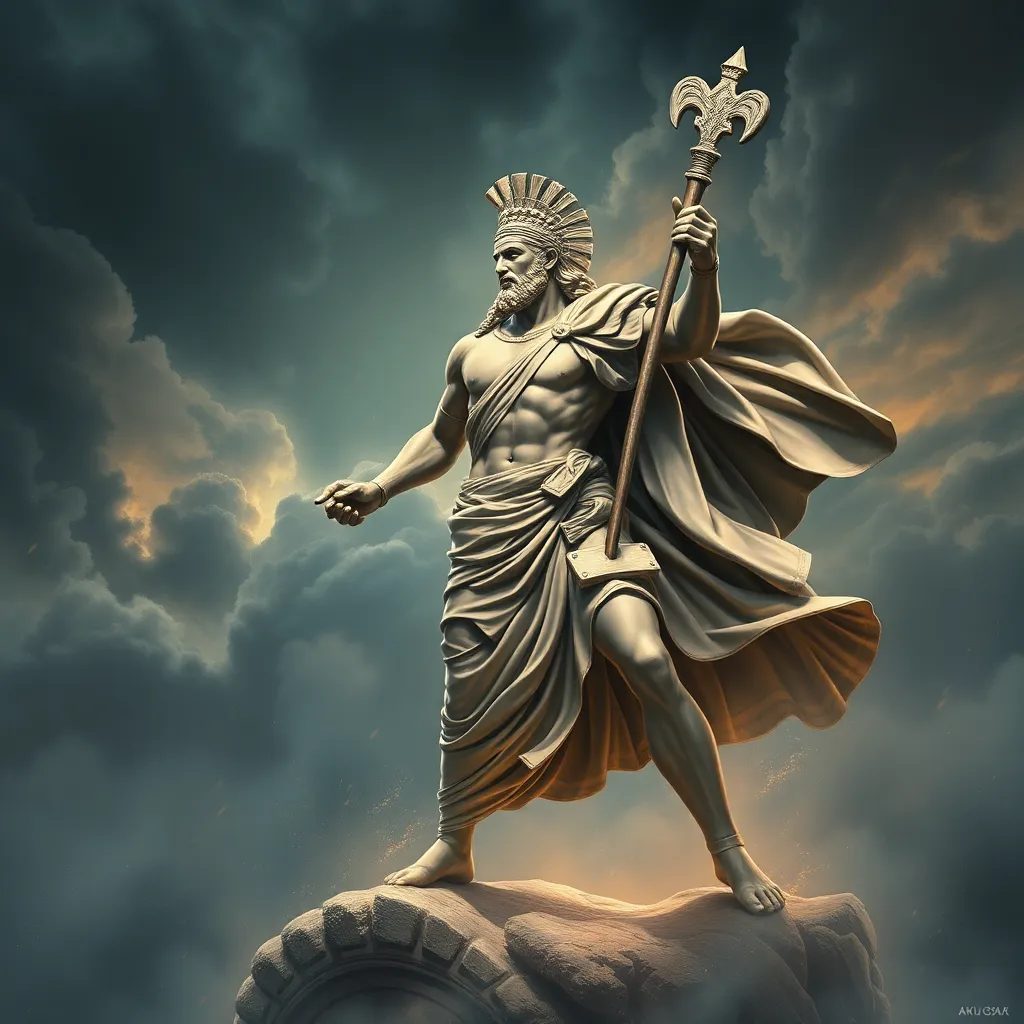The Role of Perseus in the Context of Greek Mythological Themes
I. Introduction
Greek mythology is a vast and intricate tapestry of stories that has shaped Western literature, art, and philosophy. It serves not only as a collection of myths but also as a reflection of human nature, morality, and the complexities of existence. Among the pantheon of heroes who populate these myths, Perseus stands out as a central figure whose exploits resonate with themes of fate, bravery, and transformation.
This article explores the life of Perseus, delving into his origins, heroic journey, and the legacy he left behind. By examining the various themes associated with his character, we aim to gain a deeper understanding of his role within Greek mythology and the lessons his story imparts.
II. The Birth and Origins of Perseus
Perseus’s life begins with a prophecy that foretold the downfall of his grandfather, King Acrisius of Argos. Desperate to prevent this fate, Acrisius imprisoned his daughter, Danaë, in a bronze chamber. However, Zeus, the king of the gods, visited Danaë in the form of golden rain, leading to the birth of Perseus.
Key figures in his early life include:
- Danaë: Perseus’s mother, whose beauty attracted Zeus.
- Zeus: The father of Perseus, representing divine intervention.
- Acrisius: The grandfather whose actions set the stage for Perseus’s fate.
The theme of fate and destiny is prominent in Perseus’s story. Despite Acrisius’s attempts to thwart the prophecy, Perseus’s birth and subsequent adventures suggest that fate is inescapable, a recurring motif in Greek mythology.
III. Perseus as the Heroic Archetype
In Greek mythology, a hero is often characterized by extraordinary feats, moral integrity, and a journey that tests their limits. Perseus embodies this archetype through his adventures and trials.
His journey includes:
- Defeating Medusa, the Gorgon.
- Rescuing Andromeda from a sea monster.
- Returning to Argos to confront his grandfather.
When compared to other Greek heroes like Heracles and Theseus, Perseus shares similarities in his courageous spirit and divine lineage but also differs in his reliance on cleverness and strategic thought rather than pure brute strength.
IV. The Quest for Medusa
The quest for Medusa is one of the most iconic stories in Greek mythology. Medusa, once a beautiful maiden, was transformed into a Gorgon as punishment by Athena. She possessed the terrifying ability to turn anyone who gazed upon her into stone.
Perseus’s motivations for seeking out Medusa were multifaceted:
- To obtain her head as a gift for King Polydectes.
- To prove his worth as a hero.
- To navigate the challenges of his destiny.
Throughout his quest, Perseus demonstrated bravery, cunning, and resourcefulness. He received guidance and gifts from the gods, which aided him in overcoming the formidable challenges posed by Medusa and her sisters.
V. The Role of Divine Intervention
Divine intervention is a significant aspect of Perseus’s adventures. The gods played crucial roles in providing him with the necessary tools to succeed. Notable divine gifts include:
- Athena’s shield: A polished shield that allowed Perseus to view Medusa’s reflection, avoiding her deadly gaze.
- Hermes’s sandals: Winged sandals that granted him the ability to fly.
- A magical bag: To safely carry Medusa’s head.
This interplay between divine favor and human agency raises questions about the nature of heroism. While Perseus is undoubtedly brave, his successes are often attributed to the assistance of the gods, highlighting the complex relationship between mortals and deities in Greek myths.
VI. Perseus and the Concept of Transformation
Medusa represents a profound symbol of transformation and fear. Her metamorphosis from a beautiful maiden to a monstrous Gorgon serves as a cautionary tale about the consequences of actions and divine retribution.
Perseus’s victory over Medusa not only transformed him but also had lasting impacts on his character and society:
- His triumph elevated him to the status of a celebrated hero.
- The use of Medusa’s head as a weapon symbolized the power of fear and the ability to confront it.
- His actions influenced the cultural landscape, promoting themes of courage and resilience.
The theme of metamorphosis is prevalent in various Greek myths, often illustrating the duality of beauty and horror, as well as the potential for change within individuals and societies.
VII. Perseus’s Legacy and Influence
The legacy of Perseus extends far beyond his myth. He has influenced literature, art, and popular culture throughout the centuries. His story has been depicted in numerous forms, including:
- Classical sculptures and paintings.
- Modern films and literature.
- Theater and operatic adaptations.
In later myths, Perseus’s legacy continues to resonate, often serving as a model of heroism and moral integrity. His story encourages reflections on the nature of heroism, the complexities of fate, and the importance of courage in the face of adversity.
VIII. Conclusion
Perseus holds a significant place in Greek mythology as a hero whose journey encapsulates essential themes of fate, bravery, and transformation. His exploits, particularly the quest for Medusa, highlight the interplay between divine intervention and human agency, offering timeless lessons that remain relevant today.
The enduring themes from Perseus’s story continue to inspire and provoke thought about the nature of heroism, the struggle against fear, and the legacies we leave behind. As we reflect on his narrative, we find that the lessons of Perseus are not only historical but also profoundly applicable to contemporary society.




